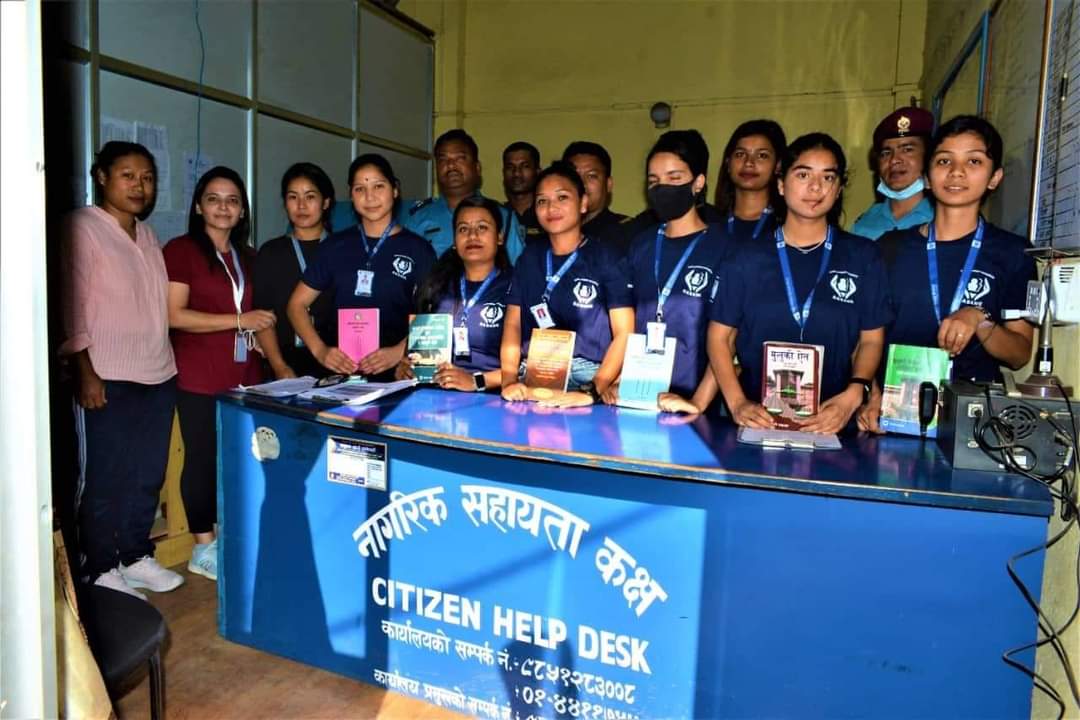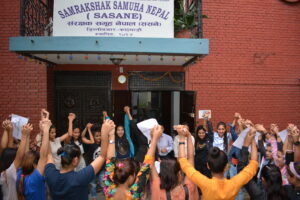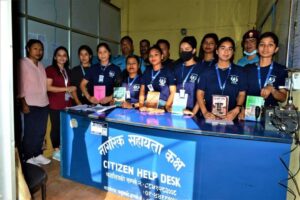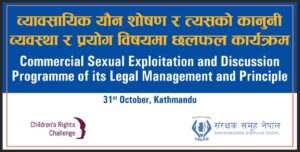
From Vulnerability to Empowerment: Safeguarding Rural Girls in Kathmandu against Trafficking and Exploitation
Young and adolescent girls from rural villages enter city in search of employment, quality education, and improved living standard. However, surviving in the city among unknown faces and without social support is easier said than done. Such girls are highly at risk of being trafficked or ending up in doubtful entertainment businesses such as dance bars, restaurants, massage parlors and beauty parlors, where they are either lured or coerced into sexual activities such as abuse, commercial sexual exploitation, or prostitution. Traffickers have a keen eye for such vulnerable individuals and tempt them with promises of good food, housing, quality education, secure jobs, and more.
Despite the seriousness of this issue, the exact number of these girls in this business is indefinable. Nevertheless, research by various organizations estimates that around 13,000 adolescent girls are employed in these sectors in Kathmandu Valley. Of these, 33 percent are under the age of 17, while the remaining 67 percent are between 18 and 23 years old. The study shows that girls below the age of 23 mostly end up in such places. Having said so, we cannot overlook the fact that in-depth research has not been done in the country yet. Therefore, the actual numbers and situation of these vulnerable girls are likely even more frightening than that previous reports have indicated.
With the transition to federalism in Nepal, local government now have increased authority to address and resolve local issues in accordance with the law. In this case, it is an imperative responsibility of the local government to identify the numbers of young girls working in such places and protect them by creating opportunities such as providing capacity development and generating employment.
In response to this, Samrakshak Samuha Nepal (SASANE) organized a meeting with ward committee members of Kathmandu Metropolitan City – 29 and Social Development Department to address these above mentioned issues and develop a sustainable solution to provide them with better opportunities and protection against exploitation.
Now that Kathmandu Metropolitan City has developed Human trafficking and Transportation Control Procedure, 2078 and started implementation in all the wards of Kathmandu, it is important to gather precise data to effectively implement the procedure and provide support to the needy ones. As per clauses 6 and 8 of the control procedure, 2078, the metropolitan committee and ward committee are responsible to identify the data and situation of vulnerable individuals, along with rehabilitating and protecting them. However, in order to do so, it is essential to conduct a thorough research in each ward of Kathmandu, rather than depending on the outdated and estimated statistics done previously by organizations.
Having up-to-date ward-wise data gathered through proper research can guide committees in effectively implementing the control procedure and enable them to address the specific needs and conditions of vulnerable individuals in each ward. This will lead to more efficient rehabilitation and protection efforts. During the discussion, SASANE pointed out that the lack of accurate data has caused ward committee to become inactive, resulting in the ineffectiveness of the 2078 control procedure. Therefore, a separate, comprehensive research is essential for ensuring effective implementation of the procedure.


